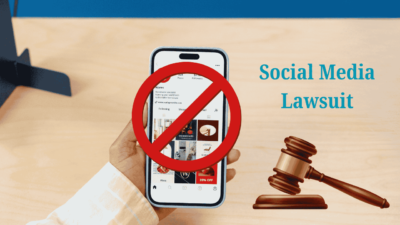Any business will sink or swim on the basic fact that it needs to make a profit. Big businesses can afford to make losses on an occasional yearly basis, small and medium sized enterprises (SMEs) often don’t have that luxury. It’s that simple stark fact, you’ve got to make a profit in a competitive marketplace or at some point you’ll go bust.
Naturally, one of the most crucial factors to get right for any business is the price of the product or service they’re selling. Obviously quality and after sales service come into it, but it’s quoting a competitive price that first grabs the attention of the potential customer. It’s the tricky business of balancing the price charged to the customer against the costs incurred in producing the service or product in question. That’s all fairly obvious. But in such a competitive marketplace, where any potential customer can find the price of a similar offering from a competitor within minutes by using a phone or a laptop – it’s becoming more important than ever to get those price quotes accurate. The price needs to be low enough to satisfy the customer and high enough to pay all the associated costs of production whilst still maintaining a profit. That’s why a deal desk has now become an essential part of any modern organization.
Legal Eagles
A deal desk is a dedicated team of employees within a company who are responsible for managing and negotiating sales contracts. These aren’t just salespeople, the deal desk team can also comprise of legal and accounting experts who oversee the legality and practicability of contracts, as well as their potential profitability. Deal desks help to avoid future problems with projects and fulfilment by predicting potential pitfalls.
A salesperson can produce what they feel to be the deal of the year, but the legal eagles and accounts managers on the deal desk can veto the contract from being written if they foresee, say, delivery or financial issues ahead. Deal desks help to ensure efficient and accurate quoting for proposals by using complex software that analyses data to predict potential hazards in any contract. So, where is that data sourced, and exactly how is it analyzed?
Let’s take an example of a medical company that produces, say, expensive X-Ray and scanning machines. Hospitals and government health authorities obviously need these machines with the latest bells and whistles; in fact, nowadays almost any device in a hospital is connected to a computer analytics software package by the ‘internet of things’ -the same technology that can also allow a regular person to turn on the oven 15 minutes before they arrive home to roast a chicken! Gone are the days of an X ray machine on a trolley that needed 2 people to push around, which broke down every week.
Quoting to sell an X Ray machine? You can see right through it…
The deal desk would use Artificial Intelligence (AI) in a software program that worked on a rules-based architecture, considering every piece of equipment that made up the proposed X-ray machine for sale. From the precise lenses to the sensor chip that captures the image via the a/c power adaptor and the trolley that the machine sits on – all these parts need to be sourced and costed. If the price of imaging chips increases suddenly by, say, 20% due to the worldwide chip shortage – that’s going to affect profit if the contract offers the machines at a fixed price to the hospital. If the company was making a $25k profit on each machine at the beginning of the yearly contract, the increased price of image sensor chips might bring that down to say $22k. That’s a 12% drop in profit, a significant problem.
But the deal desk’s software will have taken a potential rise into account by building in a safety net of, say, 6% additional profit on the cost of sensor chips, therefore sudden rise in cost of those components doesn’t hit so hard.
It’s all very clever stuff- the deal desk’s predictive AI can have analyzed the price fluctuations of every individual component over a given time period, giving the manufacturer of the machines a far higher confidence factor that the price they have quoted will be acceptable to the customer, whilst building a profit reduction buffer in the case of unpleasant surprises. Not only that, the deal desk teams would have performed extensive research about the competition to see what they were offering in the same price sector – to ensure that the quote being given was competitive.
Political Upheaval
Of course, the only thing predictive AI can’t do with certainty is to predict things like consumer mood, and external, completely unexpected economic disasters and political upheaval. All these things will affect a customer’s likelihood to commit to a five-year supply of medical imaging machinery. Imagine that federal law might change on Medicare provision, then fewer people might be using private hospitals, perhaps due to a change of government administration, say from Republican to Democrat.
AI and deal desk software might be able to take the uncertainty out of quoting for proposals, but only a person with a time machine could absolutely guarantee the solidity of any future business.




